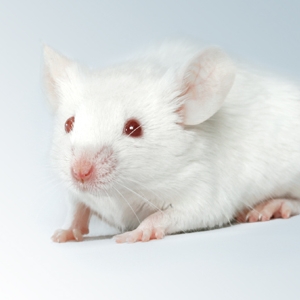We’ve been told there’s a part of our brain that controls our hunger pangs and tells us which foods are attractive. Now researchers say they’ve discovered a region of the brain that actually has the opposite effect. When activated, it seems to make not eating rewarding…
 Help may be on the way for fatties like her…
Help may be on the way for fatties like her…
Here we go with the lab mice again. If you are still wondering why scientists use mice in lab experiments, I’ll just take this moment to remind you that mice mirror the physical and mental functions of humans very closely in most respects and, so, make great stand-ins for humans in clinical tests.
What they did…
Researchers from Rockefeller University tried stimulating a group of brain cells in the hippocampus of lab mice to see what effect that would have on the subjects’ eating behaviour. These cells are naturally stimulated, to a certain extent, when the mice eat but researchers wanted to see what would happen if the cells were were pushed further.
What they found…
They say they discovered the part of the brain that acts as a counterbalance for the well-known neural centre that causes us to crave food and sometimes overeat. If the brain cells discovered in this experiment are are stimulated, subject mice eat less and seem to care less about the presence of food, or where the food is located.
The experiments also determined that the cells are influenced by impulses from the entorhinal cortex, a portion of the brain which processes sensory information, and sends output to the septum, which is involved in feeding activity.
The takeaway…
“These cells keep an animal from overeating,” says Estefania Azevedo, a Post-doctoral Fellow at Rockefeller. “They appear to make eating less rewarding and, in that sense, are tuning the animal’s relationship to food.”
Even even though these findings are very basic, Azevedo says there are clear implications for humans: “Our study shows that brain areas involved in cognitive processing and memory formation affect feeding behavior. So it is possible that, with training, people may be able to learn to change their relationship to food.”
My take…
There you go! A clear connection has been made between a discrete brain structure and overeating. If the cells Azevedo studies are damaged or somehow suppressed, mice – and, probably people – will eat more, experiencing no attenuation of their desire to eat.
We’ve already tried wide range of appetite suppressants – even amphetamines. But this new finding may just let science come up with an appetite suppressant medication without dangerous side effects. Or, as Azevedo suggests, people might be able to train their appetites toward moderation without the help of drugs. Anything to help beat the global obesity epidemic would be a boon to humankind…
~ Maggie J.

